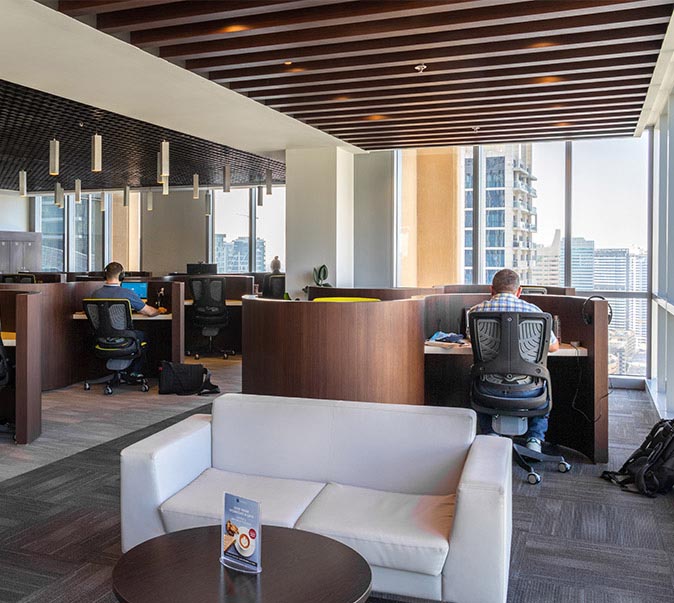The concept of work is undergoing a remarkable transformation in today’s fast-paced world. The traditional office setup, characterized by long-term leases, fixed workstations, and rigid structures, is being replaced by more flexible and dynamic alternatives. A notable solution that has emerged in this changing landscape is the rise of serviced offices, which are revolutionizing the workplace by adapting to the evolving needs and preferences of modern professionals. These serviced offices provide fully furnished and equipped spaces with flexible lease terms, enabling businesses to expand or downsize their operations without significant financial burdens. Let’s explore further how these serviced offices are reshaping modern workplaces.
Streamlining Costs and Operations
Serviced offices offer short-term leases, allowing businesses to align their workspace requirements with their operational needs. This flexibility enables rapid expansion or contraction without the constraints of long-term commitments. Additionally, a serviced office space comes fully equipped with high-quality furniture, IT infrastructure, and essential amenities. This eliminates the need for businesses to heavily invest in office setup, reducing upfront costs and administrative hassle. On-site administrative support, IT assistance, and reception services are often provided, freeing businesses from managing these tasks internally. As a result, professionals can focus on their core competencies, ultimately enhancing overall efficiency.
Fostering Collaboration and Networking
Serviced offices provide access to shared facilities such as meeting rooms, conference halls, breakout areas, and kitchenettes. These amenities foster collaboration, networking, and a sense of community among professionals working in the same space. By cultivating a vibrant community of diverse professionals from various industries, serviced offices create opportunities for networking, knowledge sharing, and potential business collaborations. This dynamic environment becomes a fertile ground for innovation and growth.
Adapting to Remote and Hybrid Work
The COVID-19 pandemic has accelerated the adoption of remote work, which has become an integral part of the modern work landscape. Hybrid work models, combining remote and in-office work, are also gaining popularity. Serviced offices cater to the needs of remote workers by providing flexible workspace options, virtual office services, and coworking spaces. These spaces offer individuals a professional environment away from home distractions, promoting focus and productivity. For companies adopting hybrid work models, serviced offices serve as a central hub for in-person collaboration and team-building activities. They can be utilized for meetings, brainstorming sessions, and fostering a cohesive company culture.
Boosting Productivity and Fostering Innovation
Serviced offices are designed to minimize distractions, allowing professionals to concentrate on their work and improve productivity and efficiency. Moreover, the diverse community within serviced offices provides professionals with access to a wealth of knowledge and expertise from various industries. Informal interactions and knowledge-sharing sessions can spark innovation and new ideas. The collaborative nature of serviced offices nurtures an environment where professionals from different backgrounds can collaborate, share insights, and create synergies. This synergy often leads to increased innovation and creative problem-solving.
Embrace The Paradigm Shift
The emergence of serviced offices represents a significant shift in the way we perceive and approach workspaces. As we continue to navigate the future of work, serviced offices provide a dynamic and responsive solution that caters to the diverse demands of the modern workforce.

Leave a Reply